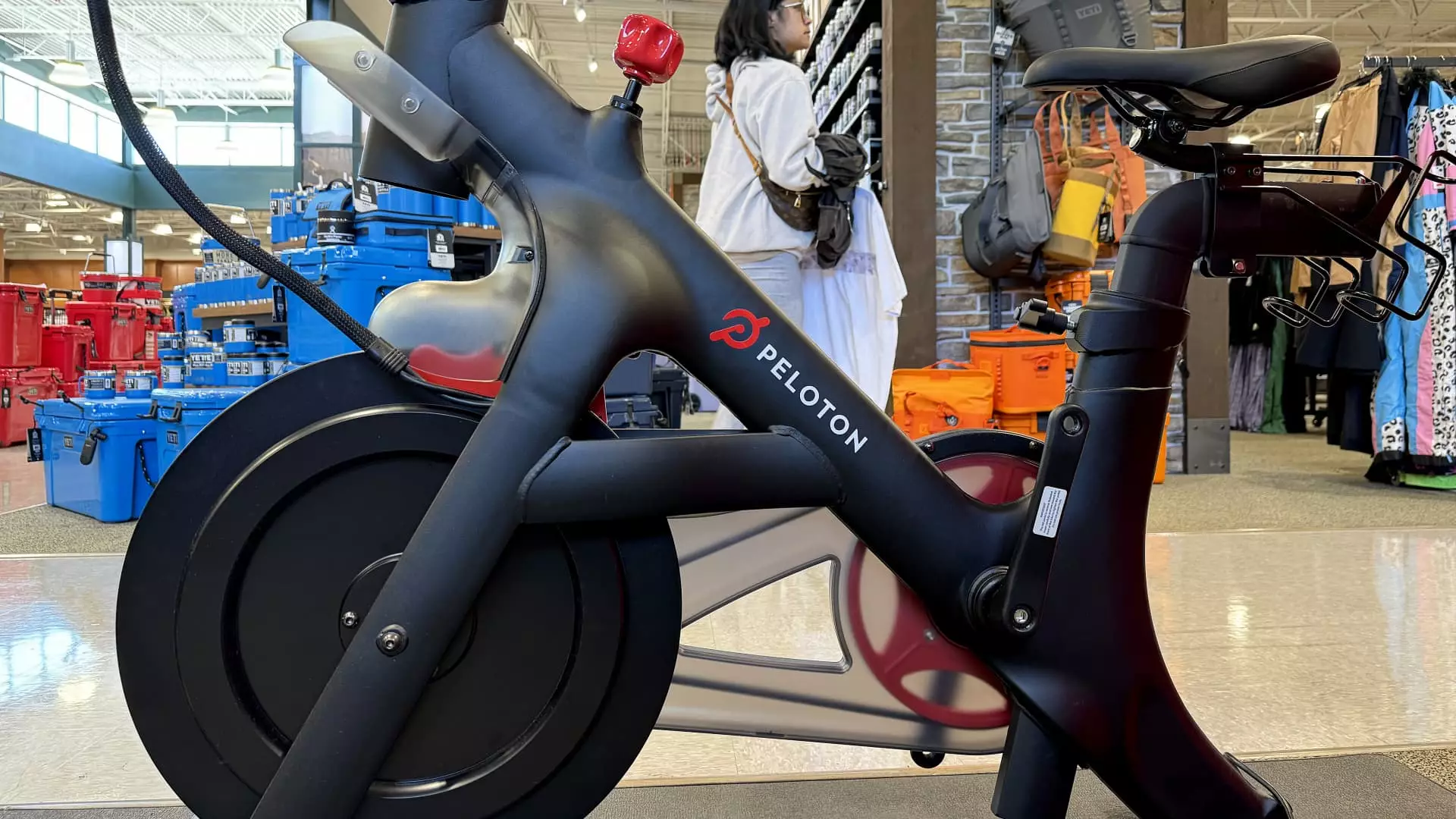For a company synonymous with luxury home fitness, Peloton has faced a harsh reality in recent years: a significant number of their high-end bikes and treadmills have become little more than elegant dust collectors. The brand, which once thrived on the promise of revolutionizing home workouts, has found itself grappling with stagnating subscription numbers and a customer base that too often falls short of lifelong enthusiasts. Peloton’s response to this dilemma includes launching a new resale marketplace named Repowered, aimed at invigorating both member engagement and increasing the utility of unused equipment lying around. The launching of this platform is a commendable initiative, but it highlights an underlying issue—too many people are buying equipment that they soon discard, reflecting a misuse of fitness culture and the often fleeting commitment to health.
Capitalizing on a Growing Resale Market
As more individuals pursue sustainable living habits and financially savvy decisions, the resale market for used fitness gear has skyrocketed. Peloton’s marketplace offers a solution for those unbothered with their purchase of top-tier fitness equipment; it’s a lifeline for both sellers hoping to recoup some investment and buyers seeking affordable options. However, let’s not overlook the association with products and brands—buying secondhand still carries a stigma, especially for a brand that prides itself on exclusivity and premium experiences. Joined by a generative AI tool that suggests fair listing prices based on item history and condition, the challenge remains: will Repowered be perceived as a mere bargain basement for what was once a luxurious pursuit?
Unlocking Financial Incentives
Amidst its launch, Peloton has laid out financial incentives designed to make the resale experience appealing for their users. Offering sellers 70% of the sales price while providing discounts toward new equipment could re-engage disenfranchised customers. Buyers, too, enjoy a reduced activation fee from $95 to $45 for used products, fostering a compelling entry point into the Peloton ecosystem. But while these financial incentives may cushion the transition into purchasing used equipment, it also raises a fundamental question: is Peloton genuinely committed to fostering a sustainable fitness culture, or is this merely a strategy to recuperate from dwindling growth?
Expanding Engagement with a Dual Approach
Peloton’s ambitious platform is not just a self-serving financial maneuver—it represents an opportunity to expand community engagement. By closely monitoring the behaviors of their demographic, the company recognizes the true potential of the peer-to-peer sales channel, as evidenced by a 16% increase in engagement from members purchasing through secondhand outlets like Facebook Marketplace. This dual approach—acknowledging previously abandoned equipment while encouraging fresh value creation—may open doors to a broader customer base. However, it could paradoxically bolster the “temporary enthusiasm” narrative associated with the epidemic of buyer’s remorse pervasive in the fitness industry.
A Marketplace of Opportunities and Threats
Repowered is strategically poised to compete against established marketplaces, including Facebook Marketplace, as well as emerging startups such as Trade My Stuff. There’s a fine line to walk; while many see this as a beneficial competition fostering better prices and options for consumers, it also places Peloton in direct opposition to those with whom they’ve previously engaged for potential collaboration. With the allure of the fitness market promising so much, companies have never been more inventive—yet it never requires less creativity or integrity.
Location-Based Expansion and Its Implications
Launching Repowered in the urban hotbeds of New York City, Boston, and Washington D.C. marks a calculated choice, but the ambition for nationwide presence soon thereafter raises concerns about scaling too rapidly. Urban markets have unique dynamics that might not translate effectively to suburban or rural landscapes where fitness culture varies dramatically. As Peloton moves forward, their adaptability will be critical, for oversaturation in less fitness-driven markets could risk diluting brand perception along with the potential for financial sustainability.
Ultimately, Peloton’s Repowered marketplace isn’t just an endeavor to promote second-hand fitness gear; it represents a litmus test for how well the brand can navigate the changing landscape of consumer behavior and perceptions in a climate that holds them accountable. In doing so, they may not just revive their own sales figures but offer an introspective lens on current fitness culture—all while reshaping the destiny of their stakeholders.

